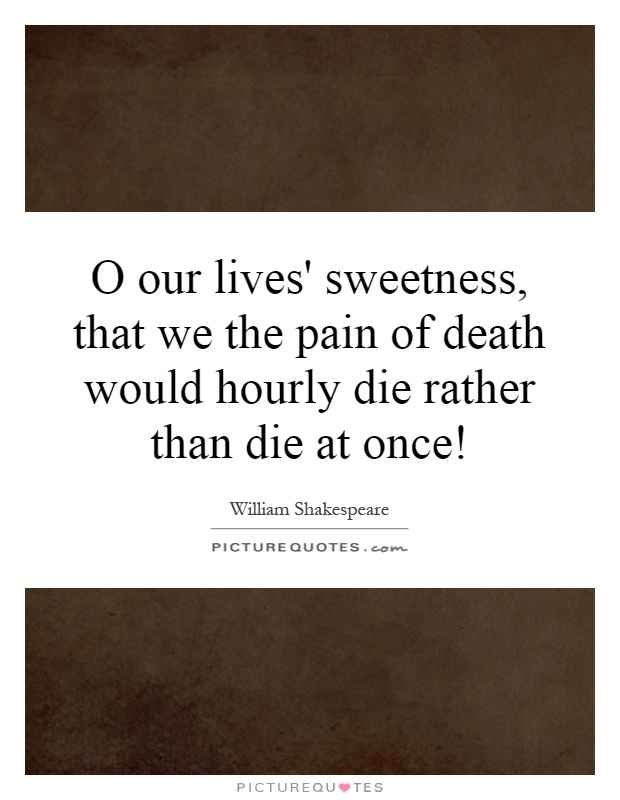O our lives' sweetness, that we the pain of death would hourly die rather than die at once!

O our lives' sweetness, that we the pain of death would hourly die rather than die at once!
The quote “O our lives' sweetness, that we the pain of death would hourly die rather than die at once!” is a powerful and poignant expression of the fear and dread of death that permeates much of William Shakespeare’s work. In this quote, the speaker laments the inevitability of death, expressing a desire to experience the pain of dying slowly and gradually rather than facing the sudden and finality of death.Throughout his plays and sonnets, Shakespeare explores the themes of mortality, the passage of time, and the fragility of life. Death is a constant presence in his works, serving as a reminder of the impermanence of human existence. The fear of death and the desire to cling to life are recurring motifs in Shakespeare’s writing, reflecting the universal human experience of grappling with the inevitability of our own mortality.
In “Hamlet,” one of Shakespeare’s most famous tragedies, the titular character famously contemplates the nature of death in his soliloquy: “To be, or not to be: that is the question: / Whether 'tis nobler in the mind to suffer / The slings and arrows of outrageous fortune / Or to take arms against a sea of troubles / And by opposing end them.” Hamlet’s existential crisis reflects the fear and uncertainty that death brings, as he grapples with the idea of choosing between the pain of life and the unknown of death.
Similarly, in “Romeo and Juliet,” the young lovers face the prospect of death as a consequence of their forbidden love. Juliet famously declares, “My only love sprung from my only hate! / Too early seen unknown, and known too late! / Prodigious birth of love it is to me, / That I must love a loathed enemy.” The tragic fate of Romeo and Juliet serves as a reminder of the fleeting nature of life and the devastating impact of death on those left behind.












 Friendship Quotes
Friendship Quotes Love Quotes
Love Quotes Life Quotes
Life Quotes Funny Quotes
Funny Quotes Motivational Quotes
Motivational Quotes Inspirational Quotes
Inspirational Quotes